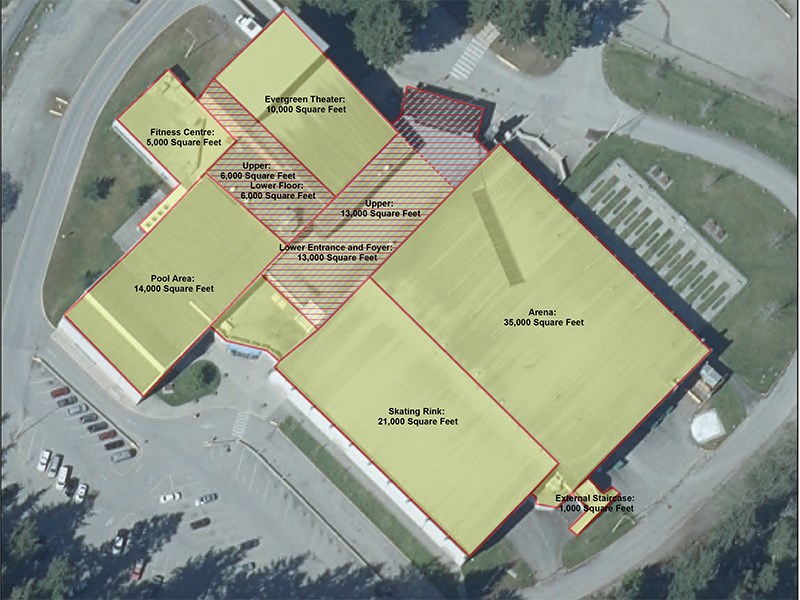A referendum in the fall general election will decide if residents in qathet Regional District Electoral Areas A, B and C are willing to contribute $178,000 to the cost of operating Powell River Recreation Complex.
“The directors wanted a number that would possibly have a chance of being acceptable,” said regional district chief administrative officer Al Radke.
The amount is far less than the approximate $550,000 City of Powell River was looking for and it will not be known if $178,000 will be forthcoming until the result of the referendum in October.
“We had to come up with some sort of rationale,” said regional district chair and Area A director Patrick Brabazon, who arrived at the decision collectively with Area B alternate director Alan Rebane and Area C director Colin Palmer.
“The city asked for $550,000; not going to happen,” said Brabazon. “None of the three directors involved thought we had any hope of going to the people for that amount.”
The question that will be posed in October is: Are you in favour of the Powell River Regional District adopting Bylaw No. 530 to establish with Electoral Areas A, B and C a service for the purpose of providing financial assistance to the City of Powell River for providing regional recreational services and to authorize a maximum annual taxation of $178,500 or $0.153249 per $1,000 of net taxable value of land and improvements, whichever is greater?
In arriving at the amount, Radke said the regional district estimated that rural residents, excluding Texada Island and Lasqueti Island, use 32.52 per cent of the facilities in the recreation complex, including the swimming pool, fitness centre and the skating rink.
“We left the arena out as we considered that Powell River Kings territory and residents in the rural area only need one rink to skate on, not two, not enough population to rationalize,” said Radke.
He said 32.53 per cent of $546,666 amounted to $177,778, rounded up to $178,800.
The number was not purely arbitrary, according to Radke, and the regional district has a sense of confidence that it will at least be considered by voters.
Sharing the cost of the $4 million dollar annual budget for the recreation complex between the region’s three governments has been discussed since 2016.
At the time, mayor Dave Formosa said the cost to operate the complex had become too heavy a burden for city taxpayers alone.
For decades, the regional district and the city have been at odds about whether the regional district was paying its fair share, according to Brabazon.
Radke said recreational cost-sharing is not exclusive to Powell River.
“This funding issue is a nation-wide ordeal; we are not doing this in isolation,” he said. “Each year municipalities and rural sectors are coming to agreement on terms. The secret is there has to be an appetite and it has taken over 40 years to have the conversation here in Powell River.”
City councillor Russell Brewer, who sits as one of two municipal directors on the regional district board, said $178,000 is better than nothing.
“It’s a positive step that’s been discussed for a long time,” said Brewer. “With any negotiation, if you can get all the parties to move a little it’s better than nothing at all and walking out of the room in a huff.”



